Tell us about your new role at TCW Strategies, and what your responsibilities entail as a member of the enrollment team.
TCW Strategies has come up with a great set of tools and services for labor unions and progressive organizations. I’m happy to be working with this team on expanding our contacts within traditional labor and figuring out how the labor movement needs to change and adapt with the post-industrial economy. I look forward to helping our team team up with progressive organizations, including traditional and non-traditional labor.
In your opinion, what sets TCW Strategies apart from other organizations in the field, and how do you see the company’s uniqueness benefiting your work with labor unions?
Even if you didn’t grow up with digital tools, it’s clear that they’re here and we have to evolve with them. I see companies using social media and digital tools to identify and engage with their target audiences and I went from thinking that we need better software and better organizers to see that the core problem was that our databases simply weren’t good enough.
From the beginning of a partnership with a client, TCW Strategies develops and builds a “source of truth.” They ensure there’s a clear snapshot of the current strategic situation and an appropriate and robust data warehouse to handle the information that will soon be flowing in. Without this vital first step, you’re losing the ability to assess and track strategic efforts. TCW Strategies understands you don’t want to simply layer software on top of a chronic data problem.
A good data warehouse is the foundation of a good organizing campaign; the structure will fail if the foundation is weak. If you want to organize at scale, you need to be testing a good list—and this is what’s exciting about what TCW Strategies brings to the table, helping you create that foundation and build solid lists that will get your message out.
With your extensive background in the labor movement, what expertise and insights do you plan to bring to the table at TCW Strategies to benefit your clients and the organization?
I was lucky enough to enter the labor movement early in my life. I saw the movie Norma Rae in the 10th grade and knew that’s what I wanted to do. I started with the textiles union and spent over a decade organizing.
From there, I moved to the AFL-CIO where I could work with unions all across the spectrum. It was an exciting time because people were pushing to organize.
It’s thanks to these experiences that I understand what unions need; public sector, AFSCME, AFT, industrial unions, building trades, service unions, and community unions – I know what organizers need and I’ve worked to educate myself on data needs and what is needed to win campaigns. I understand organizing, and I can translate organizing goals into database needs.
Sam’s commitment to the labor movement, deep understanding of the organizing craft, and a keen eye for strategic opportunities make him a significant value-add for our clients and potential clients.
—Justin Tzuanos, co-founder + CEO, TCW Strategies
What is one key aspect or fact about the labor movement/unions that you wish more people were aware of but may not be commonly known?
I don’t think that people understand that unions are the one truly democratic institution that still exists in the US; it’s all driven by membership. I have never encountered a union leader who didn’t want the membership involved – they want people to turn out.
This is another level of what makes TCW Strategies exciting. We can target folks in a union or an organization and figure out who is ready to move, and who is open to the message. Especially in the public sector, where it’s tens of thousands of members spread over communities, states, or nationwide. If you’re not on top of your data and the message, it’s hard to find the people who are activists and who could be leaders.
What excites you most about collaborating with TCW Strategies on data capabilities for unions, and how do you envision these capabilities significantly impacting the labor movement?
I’m excited because my gut told me that database tools had really matured over the last few years, but I didn’t know. And at the core of TCW Strategies, they are figuring out how to build a great data warehouse that you build everything off of. People can have great software, but if your data is a mess, it’s like a house where the plumbing doesn’t work.
Organizers need a data warehouse that’s accurate and reflects reality today, considering all possible touches with the target market. We aren’t going to knock on doors for you, we don’t replace your organizers; we enhance them.
Can you provide insight into your role in partnering with TCW Strategies’ target clients, and how you aim to leverage data-informed strategies through its services to benefit these clients?
Given TCW Strategies’ focus on data, there will always be a conversation on how to use the data. My role is to act as the translator between the folks who understand data systems and the organizers.
I’m here to help organizers understand what they need, and what services best fit their goals. We come up with ideas for campaigns that are only opened up through the use of modern data solutions, and my experience organizing allows me to talk across a variety of forums and the solutions that help organizers meet their goals.
Let’s talk about the importance of unions adopting tools used by corporations. Why do you believe this is crucial now, and what key advantages could such adoption bring to labor unions?
It’s not hyperbole to say we’re living through a communications and technology revolution. Think about it. We carry incredibly powerful computers in our pockets that essentially give us access to communicate with anyone in the world, and all of the knowledge in the world. I couldn’t have predicted it, even 25 years ago!
And the way unions function hasn’t changed in all that time. The ease at which corporations can accumulate, refine, and sort through data is extraordinary. Unions must put a concerted effort into learning that technique, figuring out who’s most open to your message, and engaging with them. It’s just practice.
Using a good data warehouse and digital outreach in a big population allows you to identify the right people with whom you can have big one-on-one conversations. We’re not selling hot tubs, we’re asking people to join a revolution.
What are some of the most rewarding aspects of working with clients in the labor and union-related industry, and how does it align with your passion for the labor movement?
If we’re good organizers, and we’re smart, we really can change society. But it’s the micro that’s sustaining. I have seen individuals overcome the blocks society has put in their way to become stronger people who are more truthful to themselves. This is what organizers do. We create situations where people can take on challenges; we provide guidance and help. This is as exciting to me now as it was 30 years ago and I’m just struck by how blessed I am to do this as a profession and for a living.
Figuring out how to do this at scale, en masse, the opportunities right now are better than they’ve been in the time I’ve been engaged with the labor movement. The pain people are feeling is harder, but their need to change the system is so much more fundamental than it’s been. We have to take advantage of this opportunity in front of us, and at scale, in a deep and broad way. Having the right tools to engage in that way is important.
As someone deeply involved in the labor movement, what current trends are you observing that are shaping the direction of this movement, and how is TCW Strategies contributing to these trends?
The ability to engage many people over a broad geographic area in a very short period of time is incredible. How could people connect like this in 1990? We weren’t even doing conference calls – we mailed postcards. Now, if you have a sticky idea, it spreads quickly. Dramatic change is possible, but not automatic; this is where organizers come in. We have the tools, but you need to believe in the tools and know which ones will serve your purpose.

Tell me about your life outside of work. Family life? Hobbies? What do you enjoy doing when you are not working?
I was married to the labor movement my whole life, and right around the time I thought that was good enough, I met and fell in love with a woman, got married, and had a son all within a year. She’s from Turkey, so it has been an incredible cultural experience. We travel a lot; travel drives us.
I love spending time outdoors and am an avid (ok, borderline fanatical) fisherman. I can’t explain why I go to a freezing swamp in February to catch a fish and immediately let it go, but I love it. The downside here is that the environmental problems are such a drag. So many of the places that I love to go, I can’t really go to anymore due to pollution and climate change.
Having a 12-year-old, I often wonder if I should prepare him for college or the water riots of 2024. It’s an interesting crossover between what I enjoy and the realities of today.



